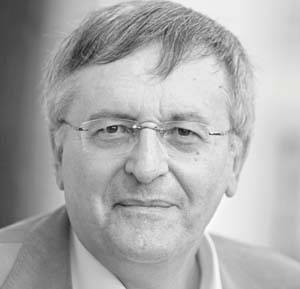People have been humanists for millennia, yet it was only 200 years ago that we felt the need for the word “humanism”. So far as we know, it was first used in 1808 by the Bavarian reformer Friedrich Immanuel Niethammer. There had been occasional references in French periodicals to humanisme from the 1760s but it was Niethammer who first articulated what was meant by the word.
Why 1808? This was an age of new words, and in particular new “ism” words, as the old vocabulary could no longer keep pace with the changing world of the Enlightenment. And 1808 was pretty much the high point of the Napoleonic domination of Europe, which gave reformers like Niethammer the opportunity to put their ideas into practice. This was the year he became Central Commissioner of Education and Consistory (no less) in Bavaria and was able to give effect to some of his theories on the reform of education. To advance his case he wrote the book which was the birthplace of humanism: The Dispute between Philanthropinism and Humanism in the Theory of Educational Instruction of Our Time.
Niethammer was faced with two extreme positions on Bavarian education. On the one hand reactionary Catholics, who were used to having their own way and were not enamoured of change. At the other extreme were the Philanthropinists. Largely inspired by Rousseau, these utopian visionaries wanted to throw out stuffy curricula and have kids paint, draw and experience things. They were not interested in rote-learning the classics, valuing instead practical and physical education and emphasising self-directed learning at the expense of rigidity, rules and coercion. Most alarming of all, they were freethinking in tone, which to its critics meant being anti-religious.
Niethammer sympathised with a lot of this, but thought they went too far in throwing out the advantages of a classical education and appreciation of things spiritual. He accused the Philanthropinists of wanting to raise healthy little animals, at the expense of their sense of civics and civility. Niethammer agreed that a degree of autonomy in learning was valuable, though he was not prepared to go as far as they were. What was needed was a creative fusion of the best of Philanthropinism with the best of humanism. This is what his book set out to articulate.
Niethammer’s humanism reflected the interests of his friend Hegel. He spoke of humanism as a broad-ranging programme of moral education designed to create a new generation of leaders, people imbued with the contemporary zeitgeist. He wanted to instil in students the condition known in German as bildung, a general cultivation, public-spiritedness and inner strength. And neither Niethammer nor Hegel was opposed in principle to the education of women. They believed women were capable of bildung, if only for the purposes of complementing their menfolk.
The end of Napoleon meant the end of the reforms and Niethammer retired from politics and disappeared into obscurity. His notion of humanism faded from memory, except for the fact that one of his colleagues during the heady days of reform was Paul Anselm Feuerbach, father of Ludwig, who went on to write The Essence of Christianity, one of the century’s most significant humanist works. An associate of Feuerbach, Arnold Ruge, took up the word humanism, and it was probably he who passed it on to George Jacob Holyoake in the 1850s, while they collaborated on a pamphlet.
The word has gone through many adventures since then, and even now, at the beginning of the 21st century, we are still groping for a satisfactory definition.
It’s an agreeable irony that humanism began life as a guarded response to progressive thinking, and that it sought the middle ground between what it saw as unpalatable extremes.

